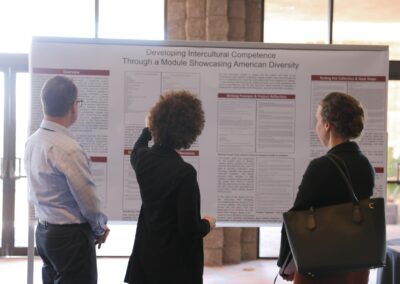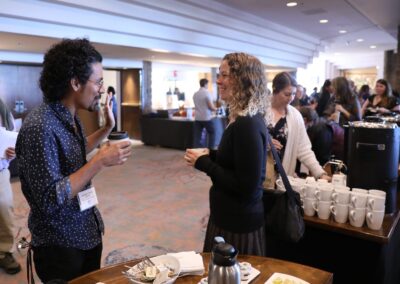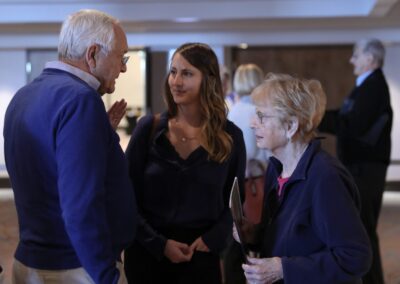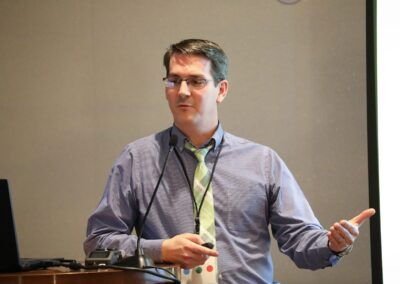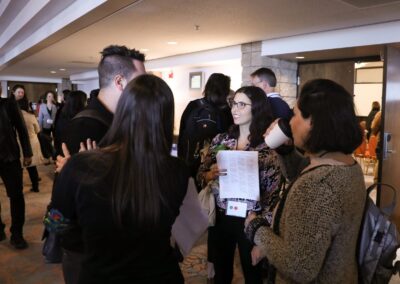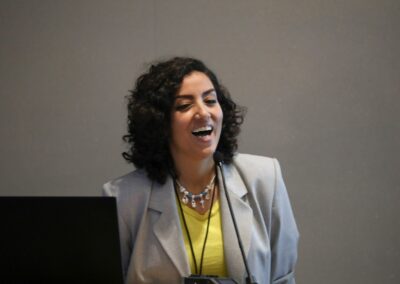Seventh International Conference on the
Development and Assessment of Intercultural Competence
Internationalizing the Curriculum:
The Role of Intercultural Competence
January 23-26, 2020
Loews Ventana Canyon Resort in Tucson, Arizona, and Online
Intercultural competence is [the ability] “to see relationships between different cultures – both internal and external to a society – and to mediate, that is interpret each in terms of the other, either for themselves or for other people.” It also encompasses the ability to critically or analytically understand that one’s “own and other cultures’” perspective is culturally determined rather than natural. – Byram, M.
Keynote Presentation
Adriana Diaz (University of Queensland – Australia)
Plenary Presentations
Marianne Larsen (Western University – Canada)
Sharon Stein (University of British Columbia – Canada)
Download the conference flyer here [PDF]
For the conference schedule, click here [PDF].
Featuring experts in Intercultural Competence from across the U.S. and internationally, the Intercultural Competence Conference is for K-16 educators and students in fields related to Foreign Languages, Social Sciences/Studies and the Humanities, and for others involved in government, NGOs, and the private sector who are interested in seeing and interpreting relationships between cultures. This biennial event brings together researchers and practitioners across languages, levels, and settings to discuss and share research, theory, and best practices, and to foster meaningful professional dialog on issues related to the development and assessment of Intercultural Competence, especially in a foreign or second language.
Hosted by the Center for Educational Resources in Culture, Language and Literacy (CERCLL) at the University of Arizona, the 2020 ICC conference took stock of current models for internationalizing curricula as well as the genealogies of these discussions. Presentations include accounts of best practices as well as critical examinations of current trends and conceptual think pieces around what it might mean to internationalize higher education.
See the complete list of presentation titles [PDF].
Recorded, livestreamed presentations (including the keynote and plenaries) are available in a playlist here.
Virtual presentations submitted for this event are are in a playlist here.
The archive of previous Intercultural Competence conferences can be found at the past conferences link in the menu bar above, including links to presentations.
The 2022 conference was organized by the Center for Educational Resources in Culture, Language and Literacy (CERCLL), co-organized by the Second Language Acquisition and Teaching (SLAT) Program, and co-sponsored by the College of Humanities, College of Social and Behavioral Sciences, Office of Global Initiatives, and the Center for Latin American Studies (LAS) at the University of Arizona, and the Center for Middle Eastern Studies (CMES) at the University of Arizona; and by the Center for Advanced Language Proficiency Education and Research (CALPER) at Pennsylvania State University; the Center for Advanced Research on Language Acquisition (CARLA) at the University of Minnesota; the Center for Applied Second Language Studies (CASLS) at the University of Oregon; the Center for Open Educational Resources and Language Learning (COERLL) at the University of Texas at Austin; the National Foreign Language Resource Center (NFLRC) at the University of Hawaii at Manoa; and the Center for Urban for Language Teaching and Research (CULTR) at Georgia State University.
Invited Speakers
2020 Keynote Presentation
Adriana Diaz (University of Queensland – Australia)
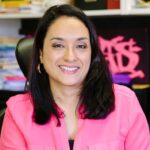 Adriana Díaz is Lecturer in the Spanish and Latin American Studies Program at The University of Queensland’s School of Languages and Cultures. Adriana’s research activities are concerned with the development of (critical) intercultural language learning pedagogies across educational contexts. She is particularly interested in learning more about how insights from critical pedagogy and decolonial critique can help us un/re-learn the ways in which we engage with languages education. Her current research projects focus on examination of global imaginaries underpinning modern universities’ internationalisation processes and their impact on the provision of languages education. She is the author of Developing Critical Languaculture Pedagogies in Higher Education: Theory and Practice (2013, Multilingual Matters) and co-editor (with Maria Dasli) of The Critical Turn in Language and Intercultural Communication Pedagogy (2017, Routledge).
Adriana Díaz is Lecturer in the Spanish and Latin American Studies Program at The University of Queensland’s School of Languages and Cultures. Adriana’s research activities are concerned with the development of (critical) intercultural language learning pedagogies across educational contexts. She is particularly interested in learning more about how insights from critical pedagogy and decolonial critique can help us un/re-learn the ways in which we engage with languages education. Her current research projects focus on examination of global imaginaries underpinning modern universities’ internationalisation processes and their impact on the provision of languages education. She is the author of Developing Critical Languaculture Pedagogies in Higher Education: Theory and Practice (2013, Multilingual Matters) and co-editor (with Maria Dasli) of The Critical Turn in Language and Intercultural Communication Pedagogy (2017, Routledge).
Diaz Abstract: The (In)visibility of Languages in Universities’ Internationalization Processes
The (In)visibility of Languages in Universities’ Internationalization Processes
Drawing on insights from critical pedagogy and decolonial theory, this presentation explores the mechanisms that have led to the invisibility of (world) languages education in western-model universities worldwide, particularly in predominantly Anglophone countries. Exploration of these mechanisms is articulated through visual mapping of the imaginaries represented in a corpus of pedagogical and policy-related genres of texts. The textual data set includes university mission statements, universities’ internationalization strategy plans and graduate profile descriptions as well as recently published scholarly research across a number of fields: applied linguistics, (intercultural) language teaching and (critical) internationalization studies.
Examination of these mechanisms aims to problematize and denaturalize the normativity of the epistemological assumptions behind current internationalization practices in higher education, and, in so doing, reconceptualize the place of languages in advancing future internationalization agendas that may help challenge hegemonic, epistemologically imbalanced, monolingualizing ideologies. Part of the problematization process involves acknowledging stakeholders’ (privileged) positionings and potential complicity in maintaining the status quo. The presentation concludes with a reflection on the ongoing struggle we face in the process of pluralizing linguistic and epistemological practices in (world) languages education.
2020 Plenary Presentations
Marianne Larsen (Western University – Canada)
Sharon Stein (University of British Columbia – Canada)
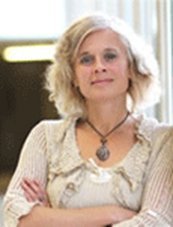 Marianne A. Larsen is a Full Professor at the Faculty of Education, Western University in London, Canada. Her research is situated within the field of comparative and international education with a focus on global citizenship education. She has conducted research on the ways that international service-learning experiences shape university students (and host communities) as global citizens. More recently, she has been researching how academics are urged to ‘go global’ by teaching and researching abroad. Her 2016 book, Internationalization of Higher Education: An Analysis through Spatial, Network and Mobilities Theories brings together her interest in theorizing ‘outside of the box’ about diverse processes of higher education internationalization. Dr. Larsen is interested in pushing the boundaries about how we think about the effects of internationalization processes, challenging taken-for-granted assumptions about how we internationalize our educational institutions, and considering the value of shifting focus from global citizenship education to global learning for all.
Marianne A. Larsen is a Full Professor at the Faculty of Education, Western University in London, Canada. Her research is situated within the field of comparative and international education with a focus on global citizenship education. She has conducted research on the ways that international service-learning experiences shape university students (and host communities) as global citizens. More recently, she has been researching how academics are urged to ‘go global’ by teaching and researching abroad. Her 2016 book, Internationalization of Higher Education: An Analysis through Spatial, Network and Mobilities Theories brings together her interest in theorizing ‘outside of the box’ about diverse processes of higher education internationalization. Dr. Larsen is interested in pushing the boundaries about how we think about the effects of internationalization processes, challenging taken-for-granted assumptions about how we internationalize our educational institutions, and considering the value of shifting focus from global citizenship education to global learning for all.
Larsen Abstract: Internationalization of Higher Education – Moving Towards Global Learning for All
Internationalization of Higher Education – Moving Towards Global Learning for All
Dr. Larsen begins her presentation with an overview of the meaning of higher education internationalization and different ways that educational institutions have internationalized including the recruitment of international students, sending students overseas for short and long-term study, transnational academic mobility and the development of transnational programs and providers such as dual-degree programs and branch campuses.
The next part of the presentation will address different motivations associated with internationalization including economic, educational and socio-cultural rationales. Larsen argues that most internationalization policies have focused on the economic value of internationalizing universities and colleges largely with the aim to prepare students (and faculty) to compete in the global market-place. Larsen will share her research on the pressures students and faculty face in being urged to study, teach and engage in research overseas, as well as the effects on those who are unable to travel abroad due to barriers they face.
Challenging the dominant economic discourse of internationalization, Larsen urges us to consider alternative, more socially just and inclusive ways of thinking about how we internationalize our campuses. We know statistically that only a minimum of students engage in study abroad or international service learning. Thus, it is imperative for higher education institutions to consider ways in which we can provide opportunities for all students, staff and faculty to become global learners. Drawing upon the work of Landorf and Doscher (2018), Larsen argues that higher education institutions need to shift away from economic rationales of internationalization to global learning. This necessitates developing ‘internationalization at home’ strategies with a focus on curriculum to facilitate global learning, “the educational processes by which students are prepared for citizenship in a diverse and interconnected world” (Landorf & Doscher, 2018, p. 29). Global learning, Larsen asserts, is a way for universities and colleges to reclaim the socio-cultural and educational potentials of internationalization and a way to understand how complex problems transcend national borders and develop solutions to seemingly intractable problems the world faces today.
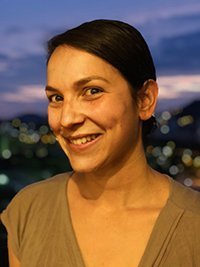 Sharon Stein is an Assistant Professor in the Department of Educational Studies at the University of British Columbia in Canada, and serves as convener of the Critical Internationalization Studies Network (http://criticalinternationalization.net). Her scholarship brings critical perspectives to the role of higher education in society, especially as this relates to internationalization, decolonization, and environmental sustainability. Her work in the area of international education emphasizes the educational challenges of addressing the interrelated ecological, cognitive, affective, relational, and economic dimensions of global interdependence. By identifying the limits of dominant imaginaries of justice, responsibility, and change, she seeks to both gesture toward different possible futures, and work with and through the joys and challenges of collective transformation. Her scholarship can be found at https://ubc.academia.edu/SharonStein.
Sharon Stein is an Assistant Professor in the Department of Educational Studies at the University of British Columbia in Canada, and serves as convener of the Critical Internationalization Studies Network (http://criticalinternationalization.net). Her scholarship brings critical perspectives to the role of higher education in society, especially as this relates to internationalization, decolonization, and environmental sustainability. Her work in the area of international education emphasizes the educational challenges of addressing the interrelated ecological, cognitive, affective, relational, and economic dimensions of global interdependence. By identifying the limits of dominant imaginaries of justice, responsibility, and change, she seeks to both gesture toward different possible futures, and work with and through the joys and challenges of collective transformation. Her scholarship can be found at https://ubc.academia.edu/SharonStein.
Stein Abstract: Internationalization and the Educational Challenges of Imagining Alternative Global Futures
Internationalization and the Educational Challenges of Imagining Alternative Global Futures
Internationalization is increasingly deemed central to preparing globally engaged students, producing relevant knowledge, and generating solutions for an ever more complex, uncertain, and interconnected world. However, critically oriented scholars and practitioners also identify the risk that dominant approaches to internationalization will reproduce enduring patterns of Eurocentric knowledge production, exploitative international relationships, and inequitable access to resources. In this talk, I consider three different theories of change in relation to critiques of internationalization in an effort to pluralize and deepen conversations about the role of education in imagining alternative global futures. In particular, I emphasize the possibilities opened up by a decolonial theory of change, which is rarely addressed in mainstream discussions. This theory of change posits that the primary educational challenges we face lie in the universalization of a modern/colonial imaginary that creates intellectual, affective and relational economies that invisibilize the violences that subsidize modern/colonial institutions, thus hiding their inherent unsustainability. This modern/colonial approach to education has left us unprepared and unwilling to address our complicity in systemic social and ecological harm, and to set our horizons of hope beyond what is intelligible and desirable within it. To illustrate these challenges and consider possibilities for facing them, I review some of the social cartographies, analyses, and experiments of the “Gesturing towards decolonial futures” research collective and the “In Earth’s CARE” network of social-ecological innovations that focus on transformative global justice.
ICC 2020: Workshop Information
Pre- and post-conference workshops are scheduled for January 23rd and 28th and do not conflict with any of the papers to be presented during the main body of the conference. Workshops take place 9 a.m. to Noon and 1 p.m. to 4 p.m. on the Thursday and 9 a.m. to Noon on the Sunday. Participants must register separately for individual workshops, as they are not included in the registration fee for the main conference taking place Thursday evening through Saturday evening.
Participants may opt to register only for workshop(s), if they are not attending the main conference.
All workshops will close a few days before the conference, but they have capped enrollment and will close earlier if they fill before that time. Register early to ensure your seat! A certificate for Continuing Education (3 hours) is provided to participants at the end of each event.
For workshop abstracts and presenter bios, click on the individual titles in the table or see below for the full list.
Workshop Abstracts:
Presenters: Divya Chaudhry (Vanderbilt University), María Luján Stasevicius (Rice University), and Kevin Garcia Cruz (Sage Hill School)
This hands-on workshop will guide teachers to systematically design instruction focused on developing learners’ intercultural competence. Using sample lesson plans and activities from their classroom teaching, the presenters will demonstrate how different frameworks – Byram’s intercultural competence model (Byram, 1997; Byram et al, 2016), conversation analysis for second language acquisition (Barraja-Rohan, 2011), and project-based language learning (Larmer & Mergendoller, 2010) – can be used to identify instructional goals, generate teaching materials, create language-learning tasks, and develop assessment tools to enhance learners’ intercultural competence.
By the end of the workshop, participants will:
- raise awareness about their personal practices of teaching culture in the classroom through self -reflection and discussion with peers
- develop an understanding of teaching and testing of intercultural competence through specific examples from real educational environments,
- create a lesson plan focused on promoting learners’; intercultural competence
- get feedback from and collaborate with colleagues on their lesson plans, and design assessment procedures and access resources for further development.
The workshop is intended for second and foreign language teachers in K-12 and post-secondary education contexts seeking to explore new approaches to teaching culture in their classroom.
Divya Chaudhry (Vanderbilt University)
Divya Chaudhry is a lecturer in Hindi-Urdu at Vanderbilt University. She received her PhD in linguistics from University of Florida. Her research interests include second language pedagogy, Hindi conversation analysis, development of interactional and intercultural competencies by learners of Hindi as a heritage/foreign language, and language teacher professional development.
María Luján Stasevicius (Rice University)
M. Luján Stasevicius received her PhD in Cultural Studies in 2016. Since then, she has been teaching and researching at Rice University, focusing on Spanish and Intercultural Communication. Her current research interests include Conversation Analysis, Cultural Competence and Intercultural Citizenship, and Intellectual Humility.
Kevin Garcia Cruz (Sage Hill School)
Kevin García Cruz is a Spanish teacher Sage Hill School in Newport Beach, California. He collaborates with researchers in Stockholm University in a project that tracks down how students who analyze, self-assess, and reflect critically on their recorded conversations in the target language develop their interactional and cross-cultural competences.
- Internationalizing the Curriculum through Introspective International Expereinces: Short-Term Programs
- Presenter Biographies
Presenters: Adrián Arroyo Pérez, Nadia Alvarez Mexia, and Suzanne Panferov Reese (University of Arizona)
Socioeconomic and political environments around the world have forced institutions to think outside the box and be creative in offering significant international experiences to students, faculty and staff. Short-term programs have become popular for internationalizing the curriculum and promoting intercultural exchanges. This workshop leads participants through a sampling of short customized programs managed by Study UA, and ways to create similar programs at their own institutions. It is intended for educators and higher education administrators interested in developing intensive short-term programs for domestic and international populations.
Study UA offers a variety of customized learning experiences in Tucson at the University of Arizona (UA) and delivers programs on-site for international students, faculty, and professionals, as well as unique programs for UA colleagues for more than 12 years. These programs are innovative, flexible, and allow students and professionals the opportunity to experience their field of study from a new perspective, helping them grow academically, professionally, and personally. These inclusive international experiences also provide participants with the tools they need to grow in their intercultural competence. Experiences vary greatly from research to projects in social entrepreneurship and musical opera. The program design is dynamic. Study UA adapts each activity to the needs of the participants’ higher education system of origin, while emphasizing the excellence of the world-renowned academic and research system of the UA.
The workshop leads participants through a sampling of these programs, a process for developing them and a rubric for evaluating impact, targeting intercultural reflection, high academic standards, and an emphasis on inclusion. Presenters will prepare a variety of case studies based on real short-term programs; each case will provide general information about type of institutions, participants, academic field, higher education systems and other details. Working in small teams, participants will analyze a short term program case study, and develop a program outline and a rubric for assessing program impact.
Adrián Arroyo Pérez (University of Arizona)
Adrián Arroyo is a Manager of Curriculum Integration at Arizona Abroad Locations. Adrián earned a bachelor’s degree in Chemistry and Pharmaceutical Sciences and his Ph.D. from the Center for the Study of Higher Education at the University of Arizona with an emphasis on international education.
Nadia Alvarez Mexia (University of Arizona)
Nadia Alvarez Mexia is the Director of Mexico Programs and Faculty Affiliate in the College of Education. In the last twelve years, she has developed short-term programs for first-generation college, women in STEM, pre-service and in-service teachers, and students from the U.S., Mexico and other countries.
Suzanne Panferov Reese (University of Arizona)
Suzanne Panferov Reese is Associate Vice President for Global Engagement at the UA, where she oversees international student services, language initiatives, and other engagement activities. More recently, she directed the Center for ESL. She researches and teaches graduate courses in language program administration and frequently presents on professionalism and leadership.
Presenters: Dianna L. Murphy (University of Wisconsin-Madison), Dan E Davidson (American Councils for International Education), Karen Evans-Romaine (University of Wisconsin-Madison), Maria D. Lekic (American Councils for International Education, Russian Overseas Flagship), and Stephen Tschudi (University of Hawai’i at Manoa)
The ‘intercultural turn’ in L2 education in the United States is evidenced by the 2012 release of the Interagency Language Roundtable (ILR) Descriptions for Competence in Intercultural Communication and the 2017 publication of the NCSSFL-ACTFL Intercultural Can-Do Statements for Intercultural Communication, as well by recent book-length treatments of the topic for modern language educators that provide practical examples for classroom teachers as well as a discussion of conceptual frameworks and theories of (inter)cultural learning in the context of modern language education. Integrating intercultural learning into the curriculum remains an ongoing challenge for many L2 educators, however, especially for those who teach languages for which there are few, if any, interculturally-oriented instructional materials in their language to draw on.
This workshop introduces a model for facilitating the intercultural development of postsecondary L2 students that was developed by a team of educators through a collaborative, interinstitutional project funded by the Language Flagship. The project began with a 360-degree survey of the cultural preparation needs of Language Flagship students participating in overseas capstone programs in Kazakhstan and Morocco, followed by the creation of a series of scenario-based modules that promote students’ critical cultural awareness and intercultural development.
The workshop will present findings from the survey, then introduce the conceptual model and examples of scenario-based modules in Arabic and Russian designed for use prior to study abroad and in the context of “cultural roundtables” during study abroad. The interactive workshop will guide participants in the creation of their own scenario-based modules, following the model and using templates provided by the workshop facilitators. Although examples will be drawn from the Arabic and Russian modules, the workshop is designed for L2 educators of any language.
Dianna L. Murphy (University of Wisconsin-Madison)
Dianna Murphy (Ph.D., Slavic Linguistics, Ohio State) is Director of the Language Institute at the University of Wisconsin-Madison, where she also serves as associate director of the Russian Flagship, executive director of the Korean Flagship, and a core member of the Ph.D. Program in Second Language Acquisition.
Dan E. Davidson (American Councils for International Education)
Dan E. Davidson (Harvard, Slavic) is Director, American Councils Research Center, Washington DC, and author/editor of 24 books and 65 scholarly articles on language, culture, and educational development. He is co-editor (with B. Leaver and C. Campbell) and contributor, Transformative Language Learning and Teaching, Cambridge University Press, forthcoming in 2020.
Karen Evans-Romaine (University of Wisconsin-Madison)
Karen Evans-Romaine (Ph.D., University of Michigan) is Professor of Russian and Associate Chair of the Department of German, Nordic, & Slavic, University of Wisconsin–Madison, and Director of the UW-Madison Russian Flagship program. She is co-author of the Russian-language textbook Golosa and co-editor of volumes on the Language Flagship and contemporary Russian culture.
Maria D. Lekic (American Councils for International Education, Russian Overseas Flagship)
Maria D. Lekic (Ph.D., Slavic, University of Pennsylvania) is Academic Director of the Russian Overseas Flagship in Almaty and associate professor of Russian (retired) at the University of Maryland. She is author or co-author of several research studies and major textbooks used today in the U.S.
Stephen L. Tschudi (University of Hawai’i at Manoa)
Stephen L. Tschudi, Faculty Specialist, is a staff member of the National Foreign Language Resource Center and the Language Flagship Technology Innovation Center. He is past recipient of an Excellence in Teaching Award from the Hawaii Association of Language Teachers and past board member of the Chinese Language Teachers Association.
- Understanding and Leveraging Student Motivation for Teaching Intercultural Communicative Competence in the L2 Classroom
- Presenter Biography
Presenter: Tim Jansa (Georgia State University)
The goal of this workshop is to introduce its participants to the foundations of motivational theory and allow them to apply the tenets of theoretical approaches to real-life L2 instructional contexts. Predominantly based on Dörnyei’s (2005, 2009) Motivational Self System and the concept of a learner’s ideal L2 self, world language instructors at all levels will explore ways to (1) identify students’ intrinsic motivations; (2) demonstrate functional cultural competence in a context meaningful to their learners; and (3) leverage students’ desired self-image to introduce and discuss relevant cultural components in the classroom.
Participants will share personal experiences, explore these experiences collectively within the given theoretical framework, and develop concrete strategies and tools to engage their L2 learners. The discussion will incorporate critical discourse on language proficiency versus interculturally relevant knowledge and behaviors and encourage reflection on how the prospect of functionality and social integration in a “foreign” culture can overcome L2 anxiety in hopes of enhancing learners’ self- determination and learning outcomes.
Although this workshop is designed for world language educators, anyone with an international background and limited experience in learning non-English languages is invited to attend. The strategies developed and discussed will be applicable, for example, to professionals who prepare individuals to go abroad without substantial language training component and who will benefit from additional tools to enhance their training programs and create pathways to intercultural understanding.
Tim Jansa (Georgia State University)
Dr. Tim Jansa is a researcher and administrator with more than 20 years of experience in adult language education, training, and higher education administration. His research centers on leadership at the intersection of postsecondary internationalization with world language teaching and learning. He holds a doctorate in educational leadership from Georgia State University.
Presenters: Kris Aric Knisely and Janice Mcgregor (University of Arizona)
Educational discourses about intercultural competence (ICC) tend to value and reward its application, though these same discourses are regularly nebulous, fragmented, and reductive. In addition to definitional ambiguity, ICC is often conflated with associated concepts (e.g., intercultural communication, cultural competence, and cross-cultural competence, to name a few), owing in part to its interdisciplinary nature and to the various theoretical orientations of scholars working on this construct. As a result, ICC can be hard to understand and apply in both formal and informal learning contexts. This workshop thus aims to help educators, including classroom teachers and other educational professionals, elucidate core elements of ICC in order to make ICC happen at their learning sites.
Workshop participants will first engage in a practically-oriented discussion of the challenges associated with defining ICC through the presenters’ own process of developing of a public-facing definition of ICC. Participants will come to understand the ways in which ICC’s chaotic representations and definitional ambiguity pose challenges to making concrete pedagogical changes that serve to foster ICC. In and through the activities and discussions in this workshop, participants will work with a framework that helps them to apply a specific definition of ICC to their own local contexts, in the spirit of ICC itself. Participants will leave this workshop having created locally relevant products (e.g., assignments, assessments, program evaluations, and/or other materials), practices (e.g., strategies for learning, teaching, and/or advising both within and outside of the classroom), and procedures (e.g., strategies for embodying ICC in all interactions with learners and colleagues) that help them foster both their own and others’ abilities to communicate effectively, appropriately, and ethically with individuals and groups whose cultures are different than their own.
Kris Aric Knisely (University of Arizona)
Kris Aric Knisely (PhD, Emory University) is an Assistant Professor of French and Intercultural Competence at the University of Arizona. His research considers sociocultural aspects of language education with a focus on gender identity and sexuality as they relate to the teaching and learning of French as a second language.
Janice McGregor (University of Arizona)
Janice McGregor (PhD, The Pennsylvania State University) is an Assistant Professor of German Studies and Intercultural Competence and an affiliated faculty member in the SLAT graduate interdisciplinary program at the University of Arizona. Her research interests include learner beliefs & language ideologies and qualitative research methods in study abroad.
- Hands-On and Open-Minded: Transformative Intercultural Experiences through Object Based Learning
- Presenter Biographies
Presenters: Anne Tiballi (University of Pennsylvania Museum of Archaeology and Anthropology) and Teresa Gimenez (University of Pennsylvania)
This workshop will provide a theoretical overview and real-life examples of successful object-based activities in the language classroom. Participants will be supported in creating their own Object-Based Learning (OBL) lessons and provided with guidance on how to access OBL opportunities at their home institutions.
Traditional cultural teaching is often disconnected from context and lacks direct experiences with the target language and culture. The lack of training, appropriate teaching materials and of a real cultural context, that enables interactions with the target culture, are some of the major challenges to the successful combination of foreign languages and intercultural education. Therefore, it becomes essential to look for new learning approaches and spaces where intercultural interactions can take place. Frequently employed in museum education, OBL is the use of physical objects to facilitate the discovery and transfer of complex knowledge across learning domains. This approach forefronts active and experiential learning where objects, not facts, are the focal point from which everything proceeds: learning tasks, exploration, critical observation, critical thinking, discussions and active inquiry. Ultimately, OBL “is much more than facts and concepts, and includes changes in attitudes, beliefs, aesthetic understandings, identity, etc (Dierking 2002).
This workshop is anchored in an interdisciplinary perspective that moves towards post- structuralist approaches to teaching and learning and a critical view of interculturality. In this workshop presenters provide a pedagogical approach that is real, concrete, and embodied. The workshop is targeted for instructors of any foreign language or professionals interested in learning the skill of providing transformative intercultural experiences through objects. Drawing from extensive collaborations between the UPenn Spanish department and the University of Pennsylvania Museum of Archaeology and Anthropology, participants will engage in hands-on activities that demonstrate the effectiveness of object-based, culturally-specific lessons. After reflecting and discussing the example activities, participants will be provided with a sample objects from the Museum’s teaching collection and they will be invited to build their own OBL activity, suited to their target language and educational goals. The workshop will conclude with a session of discussion and feedback about the activities.
Anne Tiballi (University of Pennsylvania Museum of Archaeology and Anthropology)
Anne Tiballi is the Director of Academic Engagement at the University of Pennsylvania Museum. She is an Andean archaeologist, specializing in craft production and identity. In her current role at the Penn Museum, she works collaboratively with museum staff and university faculty to incorporate the Museum’s collections into the curriculum.
Teresa Gimenez (University of Pennsylvania)
Teresa Giménez is a Lecturer at the University of Pennsylvania. She has developed a number of Object-based practices to support culture learning as a process in the classroom and in the museum for required post-secondary courses. Her forthcoming book “Relaciones Textuales entre artistas y novelistas latinoamericanos contemporáneos” is an interdisciplinary study that focuses on conceptual relationships between narrative and visual arts. Her training and experience in comparative and interdisciplinary thinking are the foundation of her new project “Culture and Sustainability in Latin America.”
Presenter: Yerko Antonio Sepulveda-Larraguibel (Texas Tech University)
Globally, there is an increasing co-existence of the cultures of the different races represented in the 21st-century classroom as well as new scenarios offered by an interconnected world. Promoting the development of intercultural competence requires an understanding of who the students are, their sociocultural background, their linguistic profiles, as well as the teaching skills necessary to educate this population. Also, it requires a critical view of the curriculum and the necessary changes to promote an intercultural mindset and prepare the students for a complex and unknown world.
Different disciplines have offered varied theories to explain sociocultural relationships in and outside the classroom; however, more practical teaching strategies should be further developed to facilitate learning and prepare students for the complex cultural and linguistic landscapes created through globalization.
In this workshop participants will use different thinking routines, associated with the Visible Thinking framework to look critically at content (e.g. art, writing, cultural artifact, etc.) explore its complexities, and find opportunities to enact change while bringing students’ perspectives and representation to the center of the learning process. Three main capacities will be explored to develop intercultural competence: looking closely, exploring the complexity and finding opportunities. The thinking routines can be applied in different subject-areas and grade-levels (K-16) since they offer multiple and adaptable ways to facilitate critical and creative thinking. Participants will receive supplemental material to bring home implementation procedures.
Yerko Antonio Sepulveda-Larraguibel (Texas Tech University)
Mr. Sepulveda is the former Teaching & Learning advisor at the Technological University of Chile. Currently, he is a Ph.D. Candidate in Spanish Linguistics at Texas Tech University. Also, he is a coach for the online course Teaching and Learning in the Maker-Centered Classroom from Harvard University
Presenters: Lisa Adeli and Clea Conlin (University of Arizona)
Organized by outreach professionals from two National Resource Centers in different world areas (the Middle East and Latin America), this three-hour workshop is designed as a program for college educators to learn about and share ways to add international content into a variety of undergraduate courses. Attendees will be asked to bring a laptop, tablet, or smart phone to enable a more active participation in the program.
The workshop will begin with presentations from the two outreach coordinators who will share information on web-based curricular materials, educational resources, and professional development opportunities for community college educators. Participants will then engage in activities to share their best practices for curriculum internationalization and to generate ideas for new programs or collaborations. The goal is for educators to leave the workshop with practical information on classroom-ready materials, concrete plans for integrating international content into their own classes, and contact with other globally minded educators.
Lisa Adeli (University of Arizona)
Lisa Adeli is the Director of Educational Outreach at the University of Arizona Center for Middle Eastern Studies, where she organizes programs for and provides information to educators, students, and members of the community. She earned a doctorate in History, specializing in the modern Balkans and minoring in Ottoman history.
Clea Conlin (University of Arizona)
Clea Conlin is the Senior Program Coordinator for the University of Arizona Center for Latin American Studies (LAS), where she oversees all K-12 and post-secondary outreach programs and schedules all LAS courses. She earned an MA in History, specializing in 20th century Mexico.
2020 ICC Conference Committees
Scientific Committee
• Carl Blyth (University of Texas Austin)
• Teresa Catalano (University of Nebraska–Lincoln)
• Nelleke Van Deusen Scholl (Yale University)
• Wenhao Diao (University of Arizona)
• Isabelle Drewelow (University of Alabama)
• Sébastien Dubreil (Carnegie Mellon University)
• Peter Ecke (University of Arizona)
• Julieta Fernandez (University of Arizona)
• Christina Frei (University of Pennsylvania)
• Emily Hellmich (University of Arizona)
• Erin Kearney (SUNY Buffalo)
• Liudmila Klimanova (University of Arizona)
• Kris Knisely (University of Arizona)
• Dale LaFleur (University of Arizona)
• David Malinowski (San Jose State University)
• Janice McGregor (University of Arizona)
• Kristen Michelson (Texas Tech University)
• Nicole Mills (Harvard University)
• Kate Paesani (University of Minnesota)
• Christelle Palpacuer Lee (Rutgers University)
• Suzanne Panferov (University of Arizona)
• Elyse Petit (Vanderbilt University)
• Diane Richardson (US Military Academy West Point)
• Barbara Schmenk (University of Waterloo)
• Joshua Thoms (Utah State University)
• Emma Trentman (University of New Mexico)
• Per Urlaub (Middlebury College)
• Kimberley Vinall (De Anza College)
Organizing Committee
From the University of Arizona:
• Xochitl Coronado-Vargas
• Anna Darian
• Beatrice Dupuy
• Kate Mackay
• Chantelle Warner



